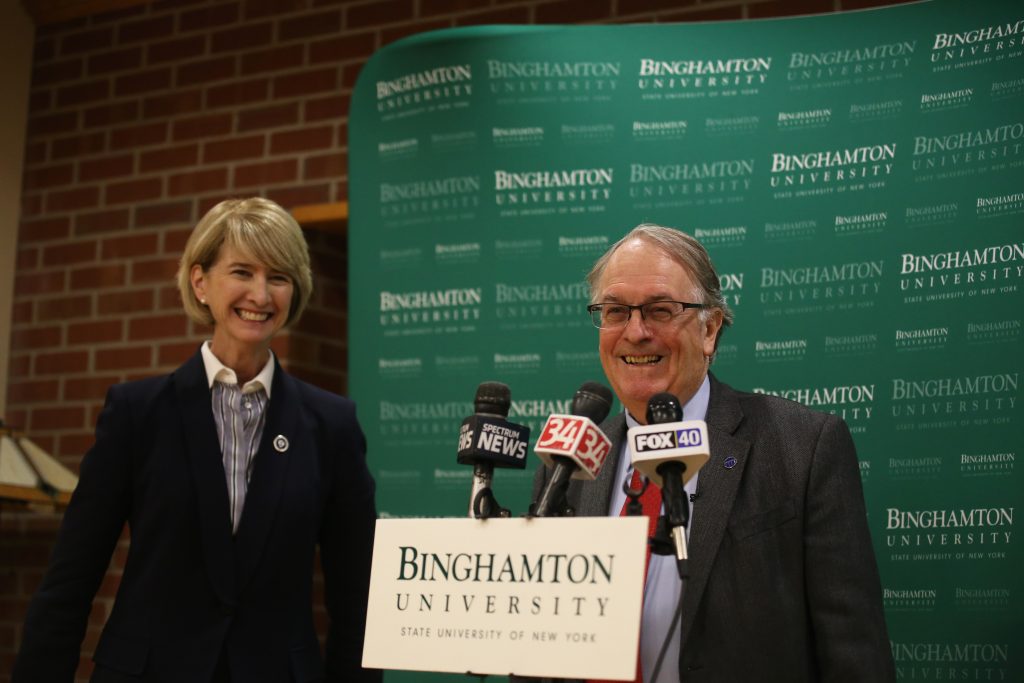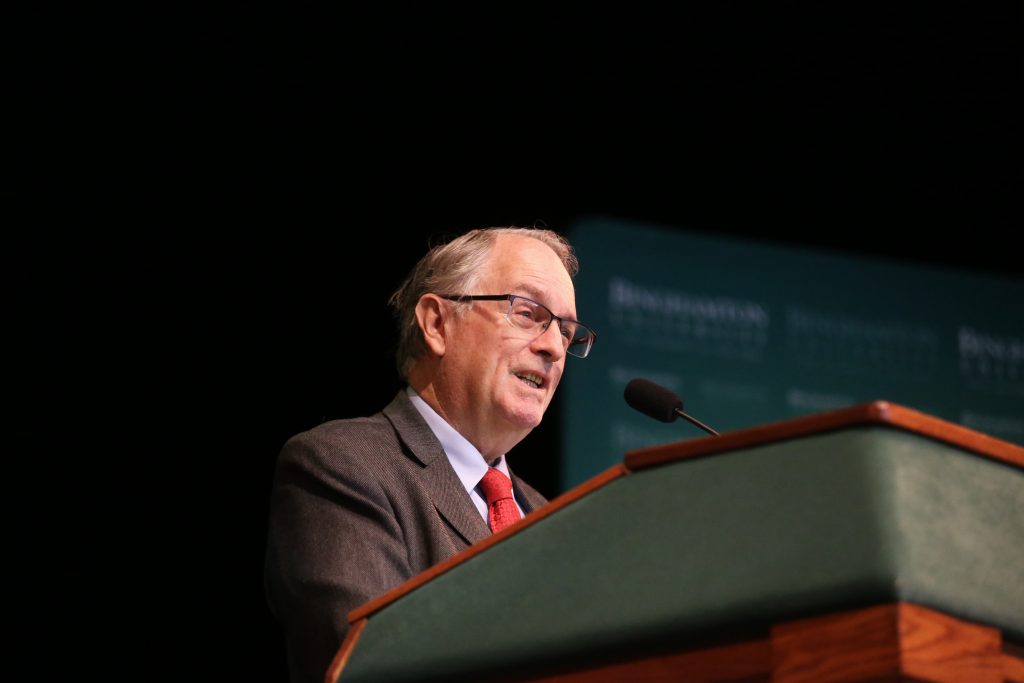
The crowd celebrating M. Stanley Whittingham’s 2019 Nobel Prize win approached maximum capacity in the Anderson Center’s Osterhout Concert Theater on Friday.
More than 1,000 people, including students, faculty and scientists from as far as China, came to campus to hear Whittingham speak. The distinguished professor of chemistry and materials science and engineering won the award on Oct. 9 for his work with lithium-ion batteries, but this is the first local public event he has been able to attend since returning from a conference in Germany.
“I am hoping this prize will raise the level of interest in energy storage and make it possible for this country to manufacture batteries and not have them all done in Japan, South Korea or China,” Whittingham said. “We will have a real business going here.”
On stage, President Harvey Stenger, Merryl Tisch, vice chair of the SUNY Board of Trustees, SUNY Chancellor Kristina Johnson and Emma Ross, Student Association (SA) president and a senior double-majoring in political science and psychology, joined Whittingham to speak on his success.
“I am so happy that what is arguably the single most important invention of our lifetime is being celebrated,” Johnson said.
During a press conference before the event, Whittingham said for a few days post-award, he received around 200 congratulatory emails a day, which has since gone down to around 50. Many of the emails, he noted, have come from past students.
Ross said she has heard from many current students as well.
“As leader of the student body, I often have the chance to speak with our students and so often when people decide to come to me it is with a concern or a complaint,” Ross said. “But this week has been a breath of fresh air to see the joy of the student community as we celebrate this award and accomplishment with [Whittingham].”
Johnson said Whittingham’s contributions are also helping New York state achieve environmental goals. In July, Gov. Andrew Cuomo signed the Climate Leadership and Community Protection Act, which included goals of reaching 70-percent renewable energy in the state by 2030 and 100 percent by 2040 — goals that are impossible without the lithium-ion battery.
“The first important steps call for decarbonizing the electric sector, and electrifying personal transportation,” Johnson said. “The key to both of these initiatives working is the ability to store energy when the sun doesn’t shine and when the wind doesn’t blow. High-density battery storage using lithium-ion … will allow us to switch from fossil fuel to electricity for heating, cooling and personal transportation.”
Whittingham continues to research lithium-ion batteries. He hopes to eventually double the amount of energy a battery can currently store per cubic foot.
Still, Whittingham had one unique request for the future of Binghamton University and SUNY, reflecting on his time as a student at Oxford University.
“England at that time thought language was very important,” Whittingham said. “I am concerned these days that maybe this country is saying languages aren’t so important. Please, President, Chancellor, keep languages on your screen.”



